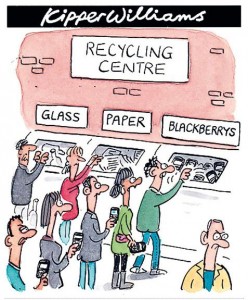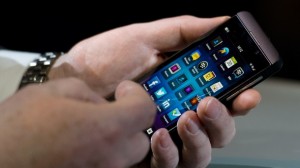The catastrophic failure of Blackberry as a company should act as a warning to all companies that currently dominate the market of what happens when a company becomes complacent. Blackberry “only accounts for less than 1% of sales worldwide” and has lost customer favour to competitors like Apple, Samsung, and Android.
However, John Chen’s Focus differentiation strategy to revitalize Blackberry theoretically is promising. By marketing itself as “the one-stop shop for security-conscious businesses” it targets narrow segment of governments and big corporations. The company can direct innovation to satisfying this unmet need of security.
It would be futile to compete head on against Apple (for instance). In order to move up “the ladder” Blackberry could instead try to reposition the consumer’s opinion on the safety of competitors’ products by capitalizing on the Jennifer Lawrence’s iCloud scandal and the danger of Chinese hackers. This is an example of a “Transient Advantage” as Blackberry becomes relevant by recognizing opportunities and exploiting them.
Another recommendation is co-creation with these large firms and governments or providing customization services to satisfy their exact needs. This would give Blackberry a point of difference.
Can Blackberry recover, or is the company permanently damaged from committing the first of the Seven Dangerous Misconceptions?


